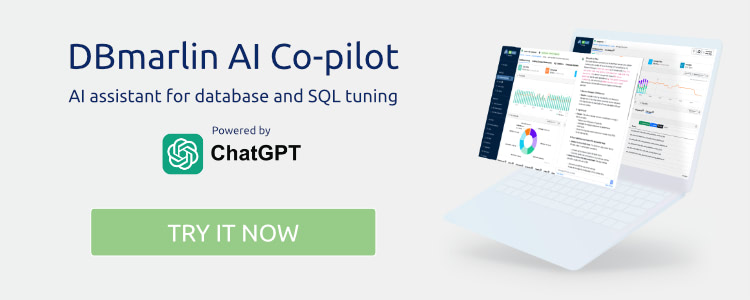DBmarlin 4.2.0 adds AI Co-pilot
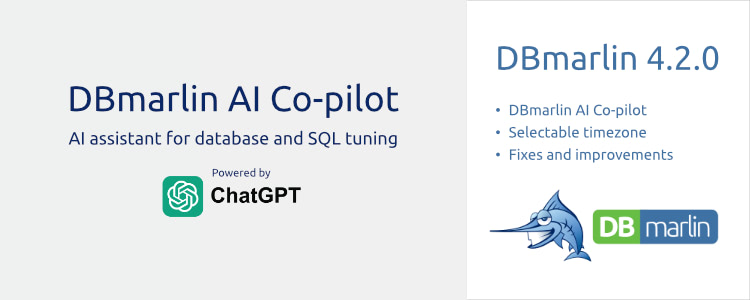
We are pleased to announce the release of DBmarlin 4.2, a significant step forward. This version introduces our new DBmarlin AI Co-pilot feature, which offers tuning recommendations for optimising your database and SQL statements.
DBmarlin AI Co-pilot
In DBmarlin 4.2, the DBmarlin Co-pilot use GPT4.0 as the model from OpenAI. In our testing we have found that this model gives the best results for the database tuning use cases that we are asking from it. In the future we may integrate other AIs or other models but for now you will require a paid plan from OpenAI which starts from $20/user/month. On first use you can enter your OpenAI API key which will be remembered.
Video Walkthrough of DBmarlin AI Co-pilot
Access Co-pilot from any screen
DBmarlin Co-pilot can be accessed from any screen within DBmarlin via the right-side slide-out panel. This means with one click you can always ask any question.
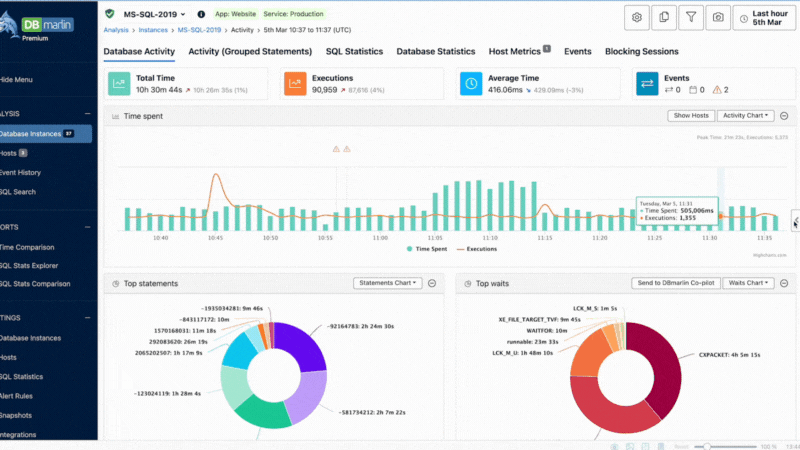
DBmarlin AI Co-pilot for Wait Event recommendations
On the “Database instance details” screen, there is a “Send to DBmarlin Co-pilot” button on the Top Waits panel. Clicking this will request advice from DBmarlin Co-pilot on tuning the top wait events. For each of the top wait events it will give a short description of what they mean and what can be done to reduce the wait time. You can follow up using the chat box to ask for further clarification of suggestions for any particular suggestions.
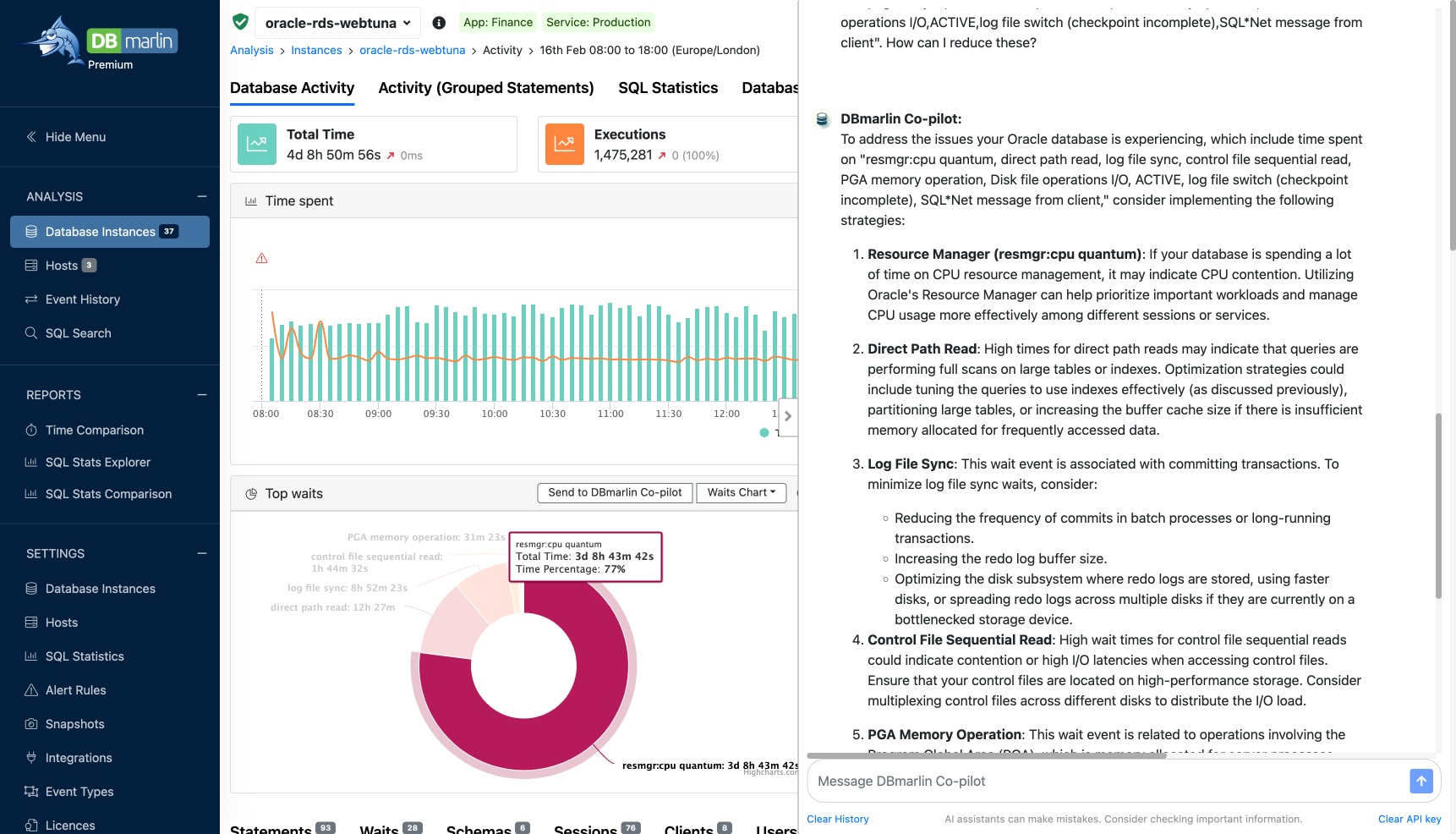
DBmarlin AI Co-pilot for SQL Tuning
On the “Statement and Plans” screen for any SQL statement, there is a “Send to DBmarlin Co-pilot” button. Clicking this will prompt the system to request advice on tuning the selected statement by analysing the SQL text and execution plans. DBmarlin AI Co-pilot responds with suggestions such as creating indexes where appropriate (including the DDL statement to create the index). It may also suggest other optimisations such as adjusting database parameters, partitioning, updating table statistics, using materialised views, or rewriting the query.
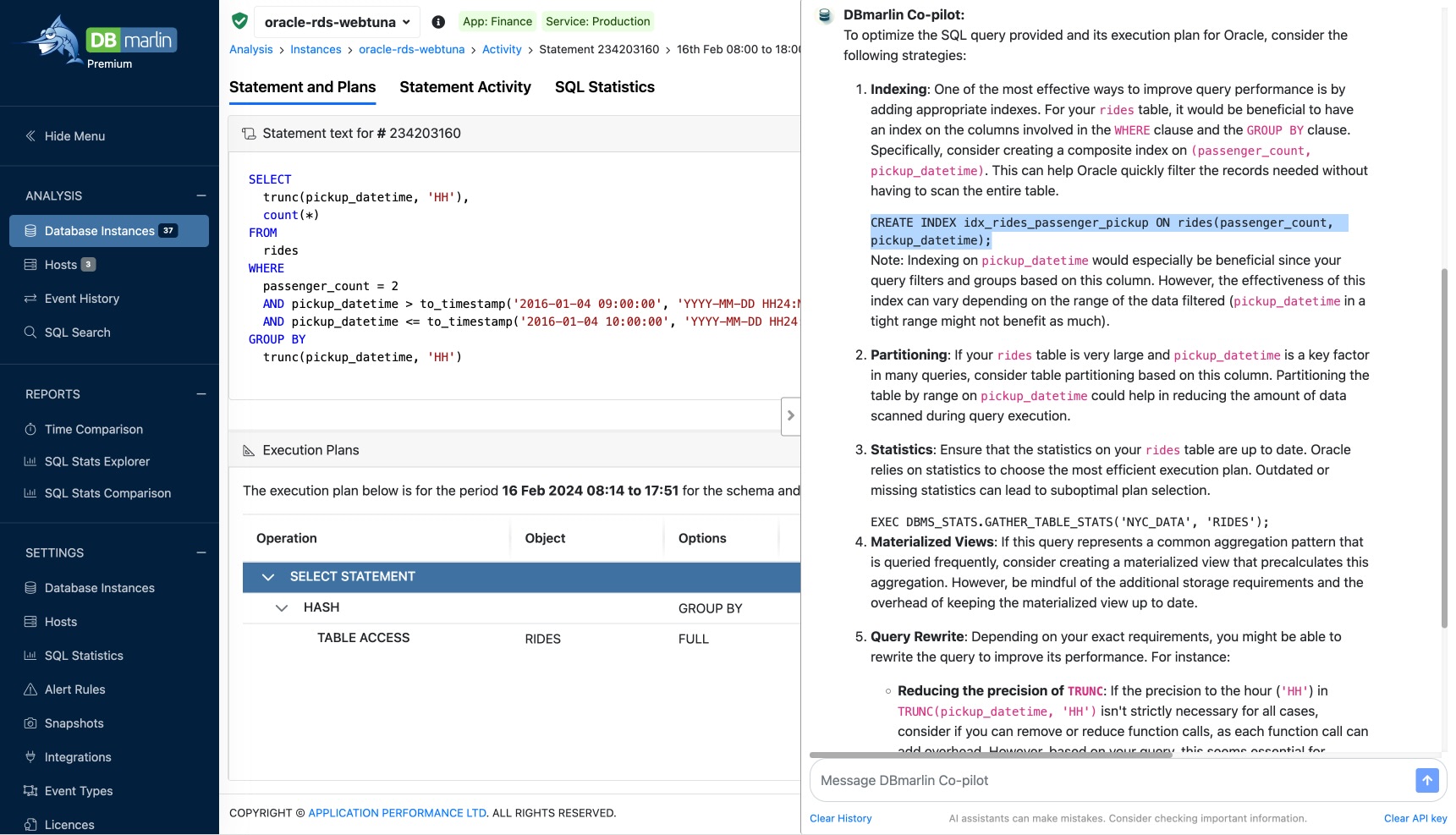
DBmarlin Co-pilot demonstrates that AI can significantly reduce the time investment required for complex tasks such as database tuning and SQL optimisation, even for seasoned experts.
Tasks that once took hours are now significantly more streamlined. Looking towards the future, it’s evident that artificial intelligence (AI) is not just a passing trend. It’s a fundamental technology shaping our future and will become an even more potent tool for saving time.
Other improvements in 4.2
View data in UTC time
Many customers use UTC (Universal Coordinated Time) as the standard for their servers. As a result, any associated log files from the server with monitoring data in DBmarlin may require manual timezone conversion, which can lead to errors. The DBmarlin date/time selector now allows you to choose between UTC or browser time. This setting is saved and applied across all screens you visit.
DBmarlin UI performance
We discovered that formatting SQL text for tooltips was causing excessive scripting time in some scenarios. This issue has been addressed, resulting in improved page load times.
Ready to try DBmarlin?
If you would like to find out more about DBmarlin and why we think it is special, try one of the links below.
- Get hands-on without an installation at play.dbmarlin.com
- Download DBmarlin from www.dbmarlin.com, with one FREE standard edition license, which is free forever for 1 target database.
- Join our new community at https://community.dbmarlin.com/invitation?code=74020A

